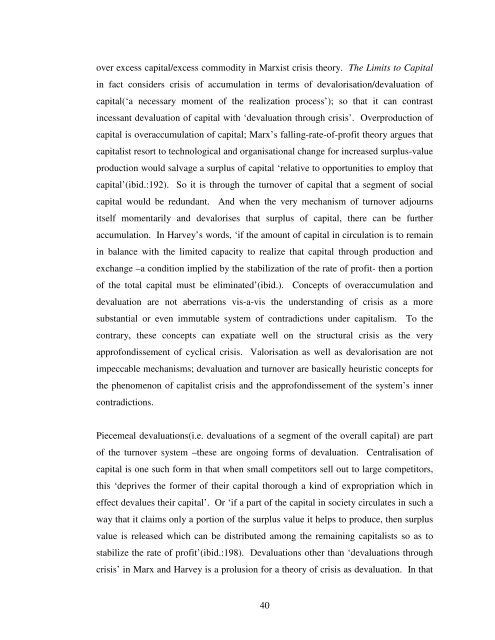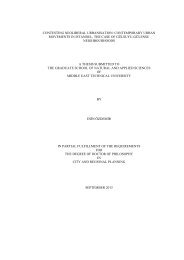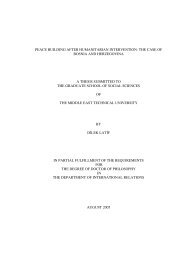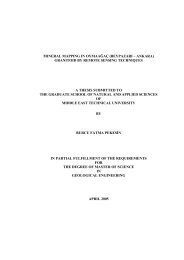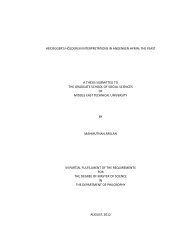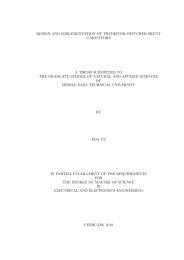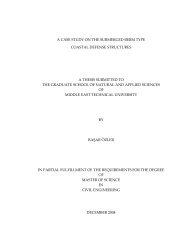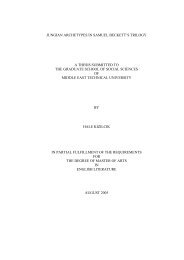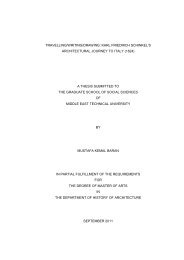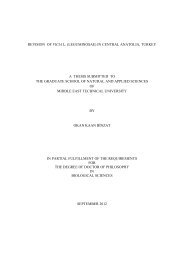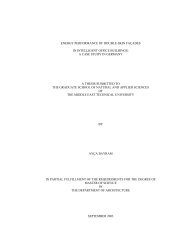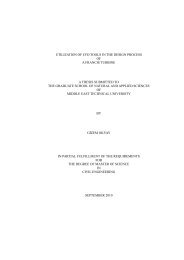View Original - Middle East Technical University
View Original - Middle East Technical University
View Original - Middle East Technical University
Create successful ePaper yourself
Turn your PDF publications into a flip-book with our unique Google optimized e-Paper software.
over excess capital/excess commodity in Marxist crisis theory. The Limits to Capital<br />
in fact considers crisis of accumulation in terms of devalorisation/devaluation of<br />
capital(‘a necessary moment of the realization process’); so that it can contrast<br />
incessant devaluation of capital with ‘devaluation through crisis’. Overproduction of<br />
capital is overaccumulation of capital; Marx’s falling-rate-of-profit theory argues that<br />
capitalist resort to technological and organisational change for increased surplus-value<br />
production would salvage a surplus of capital ‘relative to opportunities to employ that<br />
capital’(ibid.:192). So it is through the turnover of capital that a segment of social<br />
capital would be redundant. And when the very mechanism of turnover adjourns<br />
itself momentarily and devalorises that surplus of capital, there can be further<br />
accumulation. In Harvey’s words, ‘if the amount of capital in circulation is to remain<br />
in balance with the limited capacity to realize that capital through production and<br />
exchange –a condition implied by the stabilization of the rate of profit- then a portion<br />
of the total capital must be eliminated’(ibid.). Concepts of overaccumulation and<br />
devaluation are not aberrations vis-a-vis the understanding of crisis as a more<br />
substantial or even immutable system of contradictions under capitalism. To the<br />
contrary, these concepts can expatiate well on the structural crisis as the very<br />
approfondissement of cyclical crisis. Valorisation as well as devalorisation are not<br />
impeccable mechanisms; devaluation and turnover are basically heuristic concepts for<br />
the phenomenon of capitalist crisis and the approfondissement of the system’s inner<br />
contradictions.<br />
Piecemeal devaluations(i.e. devaluations of a segment of the overall capital) are part<br />
of the turnover system –these are ongoing forms of devaluation. Centralisation of<br />
capital is one such form in that when small competitors sell out to large competitors,<br />
this ‘deprives the former of their capital thorough a kind of expropriation which in<br />
effect devalues their capital’. Or ‘if a part of the capital in society circulates in such a<br />
way that it claims only a portion of the surplus value it helps to produce, then surplus<br />
value is released which can be distributed among the remaining capitalists so as to<br />
stabilize the rate of profit’(ibid.:198). Devaluations other than ‘devaluations through<br />
crisis’ in Marx and Harvey is a prolusion for a theory of crisis as devaluation. In that<br />
40


